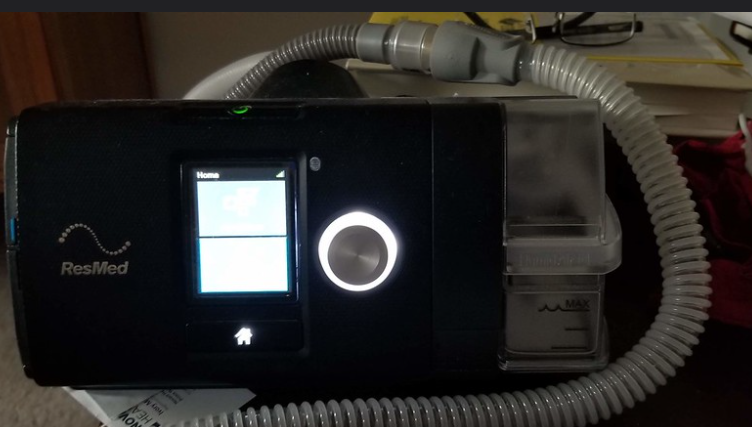

CPAP stands for continuous positive airway pressure. It is one of the most common methods for treating obstructive sleep apnea. CPAP therapy has commendable results to the point that sleep apnea patients do not need CPAP after a certain period.
However, to reach such results, it's essential for the patients to continuously use CPAP treatment. The treatment is carried out with the help of a CPAP machine.
Now if you are new to all this or still figuring out which device is good for your breathing problem, then you might want to know more about CPAP machines. So, stick until the end if you want to know exactly how a CPAP machine works.
CPAP (continuous positive air pressure) is most commonly used for treating obstructive sleep apnea and central sleep apnea. It uses mildly pressurized air to open the air pathway so patients can breathe properly while sleeping.
CPAP device consists of several parts/components like an air pipe through which air pressure is delivered and a CPAP mask through which air pressure enters your air pathway to the lungs.
It helps your mind and body get enough oxygen which is required throughout the night while you sleep. Different types of CPAP machines have different air pressure settings for individual breathing scenarios.
It's important to consult a sleep specialist to find out what kind of sleep apnea machine will work best for you. Also, make sure to use the prescribed pressure and recommended sleeping position advice by your sleep doctor.
CPAP (continuous positive airway pressure) is one of the most common methods for treating sleep apnea. CPAP machines have components like an air pipe through which air pressure is delivered, a mask through which air pressure enters your air pathway to the lungs and a humidifier chamber that helps keep your mouth from getting dry while you are wearing the CPAP mask.
There are three kinds of CPAP machines. Each one of them has its own air pressure delivery setting, which is required in different situations. Some key differences between these machines are:
This is one of the most common PAP machines. It provides continuous air pressure to keep the air pathway to your lungs open while you sleep.
APAP stands for auto-adjusting positive airway pressure, also called auto-CPAP. It can change the pressure to suit your breathing pattern; therefore, the name automatic positive airway pressure.
Bilevel positive airway pressure has two types of pressure settings, high and low. High pressure for inhaling and low pressure for exhaling. This machine has a wide range of pressure setting reaching upto 30 cm h20
There are 4 types of CPAP masks, each one explicitly designed for specific use and situation to suit the patient in the best possible way. People have varied face sizes.
As a result, not everyone will be best suited to the same size and type of mask. Finding the perfect mask will help you have an ideal size and will add to the comfort. Here are different types of CPAP masks.
CPAP can treat sleep apnea to the point where patients start breathing normally after some time. Sleep apnea is a serious disease if left untreated and can cause other problems besides breathing. Using CPAP to treat sleep apnea can have other good impacts on life, such as:
CPAP or sleep apnea machines have been a saviour for many patients who suffer from severe sleep apnea while preventing other diseases. Regular and consistent use of a CPAP machine treats your heart-related problem and promotes a healthier lifestyle.
Leave a comment